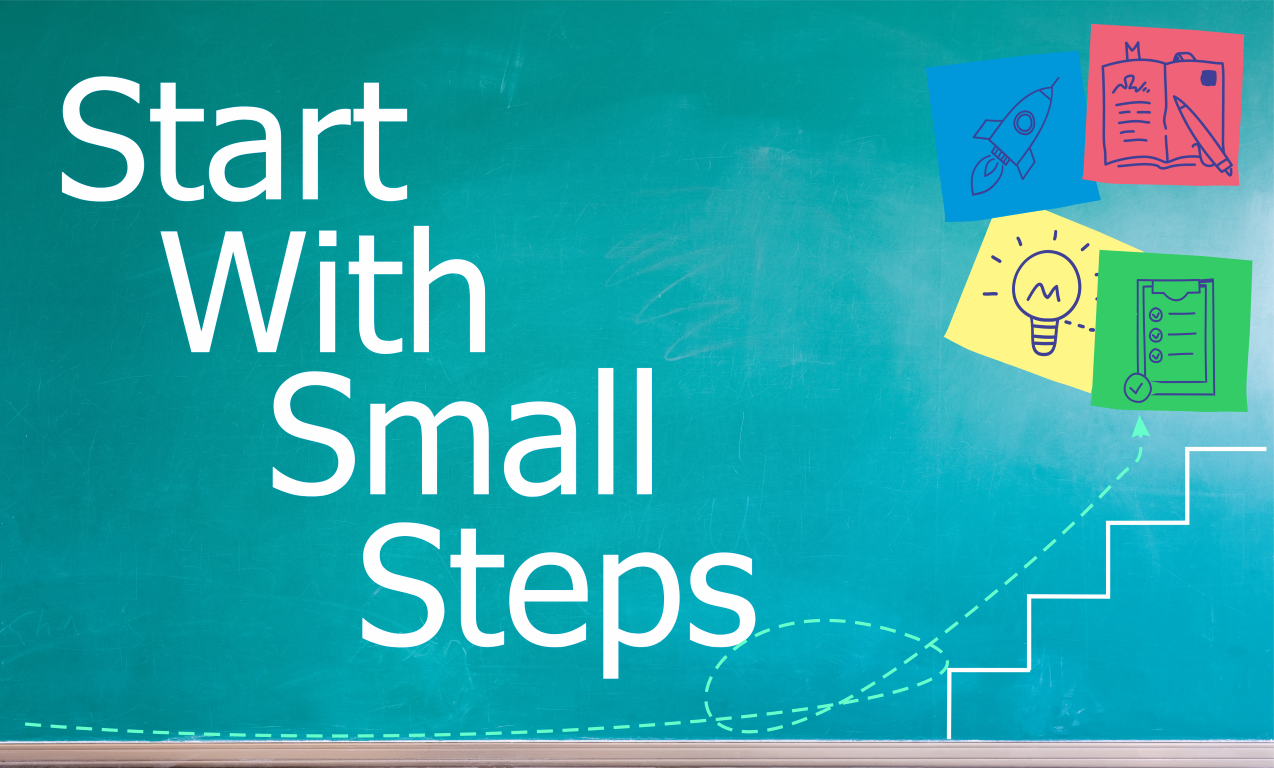“We make our world significant by the courage of our questions and by the depth of our answers.” – Carl Sagan.
Today we’re going to talk about the book, Ask for More by Alexandra Carter. But this time, we’re going to talk about the questions she says you should ask during negotiations. First of all, she says, don’t ask questions that start with a non-action verb like “be” or “do”. “Is it going to rain tomorrow?” “Did my presentation work well with the audience?” All of those are closed questions. They don’t really lead to anything. It’s a little bit of how we talked about, trying to spur on conversations and feedback with other people on episode 26. So if you say something like, “Do you like vegetarian food?” The person will say, ‘Yes,’ maybe it’ll say, “I eat it all the time.’ Maybe there’s one more sentence there. We’re trying to get a good conversation going with people or trying to strike up questions that bring us more information. This is different from the podcast episode that we did that talked about having interesting conversations. These are fact-finding conversations. We don’t want to start with “is” and “be” and “do”. We want to start asking open questions.

Then she talks about Fishing with a Net using the power of open questions. She said to make sure that you’re asking action questions. You’re not asking these closed-ended questions. She says, don’t use “why” questions. “Why” implies blame. “What” questions indicate what can I do to get this promotion? Instead of “Why don’t I ever get promoted? Terrible, right? The “what” question really starts the direction of a conversation into how can I get there?
She said that she thinks of this human emotion and that gut instinct as a volcano. Volcanoes can produce new life, new land. It is a growth process. But it can also destroy property and destroy life itself. It’s the same thing with emotions. It just depends on how the emotion is coming out of the volcano, whether beneficial or damaging.
We’re going to talk about some questions that Alexander Carter says are good questions to ask in a negotiation and I would say even a tough conversation. The first question she mentions is using the phrase “tell me”. She says that is the “wellspring of innovation” because it gives you the ability to learn what the other person is thinking. “Tell me what your view is?” “Tell me what you see my role in this company is in five years?” “Tell me what you think about what I just told you?” Or the ultimate “tell me”, “Tell me more.” Sometimes when you leave it open-ended like that, you’ll get better details about what you’re looking for. So let’s say you’re going in for a negotiation with your boss on a promotion. She says, “I really see you being in charge of this team someday,” and you say, “Tell me more.” That will give her some ability to flesh out some of the details she thinks will happen in this promotion and how you’re going to get there. The “tell me” the question is so important.
Sometimes if you’re confused about exactly why you’re having a meeting or maybe you didn’t instigate the discussion that you’re having you can even say, “Tell me your hopes for this meeting.” “Tell me what you’re looking for.” “Tell me what’s on your mind.” Again, these types of questions will help you. Alexandra talks about looking for a new job. “Tell me your thoughts about this role.” These are great ways to talk about a new job that you’re pursuing. She gives the example of someone who started with a company, and they have a compensation package change after the first two years of employment. She’s just going into the meeting and saying, “I’d love if you could tell me from your perspective how things have gone this past year.” It’s a great question that will give insight into what your boss’s thinking.

She says to Land the Plane. Landing the Plane means that you ask the key “tell me” questions. It is critically important to do this step. Once you’ve asked that key “tell me” question that will finish the negotiation, don’t ask something else after you’ve made your successful negotiations.
She says it’s essential that we enjoy the silence. I don’t know about you, but I hate silence. It makes me squirm inside. If I ask a really tough question. “Tell me what you think about our relationship. Is it going okay?” And then there’s silence there. My mind is going wild, trying to invent all the answers that the other person is making up. It is essential to give that person the time to answer the question honestly and from the heart. And she says, if you’re nervous about the silence, look them in the eye and a friendly expression. Start counting in your head. I think for me that counting in my head would probably make me more nervous. So maybe you just want to label things with letters or something that’s not a number. I’m really good with numbers. And so numbers would make me do the math on how long it’s been since I’ve heard something. But she says, challenges yourself to see how high you can go before that silence is broken. And if you’re on the phone, and this is a tough phone call, make sure that you’re walking around, you’re getting a stretch, look out the window, staring at something pleasant.
And then asking the question, “What do you need? It’s the one thing that gets to the key issue that’s going there. For example, if you’re in negotiation over a house you’re trying to buy, and you’re trying to get the person selling the house to do something, and you say, Tell me what you need to get this done. We put the house on the market, and you suggested that you want to move in immediately. If you can actually give us a couple of months to get these repairs done, that will help us actually do what you’re asking us to do. If that’s reasonable. There you go. So by asking the question, “Tell me what you need,” you might know precisely what it is that’s causing them to pause and giving you a positive answer. And then make sure that you listen to them, you follow up with good follow-up questions. Whenever you follow up with questions, it makes them realize you’ve listened to them, you’ve heard what they said. So if you came back and said, you just need an extra couple of months to get this done. What about giving you three months to get this done, and now they know you heard them and that you’re responding to what they asked for.

Then she says to listen to what wasn’t said. She warns that body language can be complex. Sometimes, you see these books that say that crossed arms are people who are close to ideas. They may not be closed to you. It might have had something to do with the last meeting they were in, maybe their back’s killing them that day, and they just had their arms crossed because their shoulders hurt. You don’t even know what the answer is. She said that instead of looking at body language, look for changes in the body language. For example, the person had their arms all crossed up when you walked into the room. And then suddenly, they started opening up more without their arms being crossed. That’s a positive sign. If the person was initially paying attention to you and now suddenly is looking at their email or staring at the wall and not paying attention, maybe this meeting has gone on too long.
And if the negotiations aren’t going well, then what you can do is sometimes put the ball back in their court. Which would be “What would a workable solution look like to you?” That forces them to be part of the solution. If your boss asked to have a daily call with you, it has got to take a lot of time away from your project. Can you help me understand exactly what this daily call would entail? And why do you think it’s important? If they just said, I just want project updates, you can say, well, maybe I can send you emails every day telling you how the project is going.
Avoiding those why questions, but instead saying, help me understand, tell me more? What is the problem you’re trying to solve? If you can ask those questions that may help you first build trust and help you get to the right situation so that they can troubleshoot the issue and be a problem solver with you instead of someone who might be an opponent.
And after you summarize exactly what this meeting was about, then you can say how would I do once you’ve given the summary? or What did I miss? And she warns against asking the question, Did I get that right? She said that’s just fishing for a compliment and inviting a simple yes or no? Did I get that right? Yes. Or no? which thing didn’t I get right?. So it doesn’t really give you more information about what’s going on with the other person. Some other questions she suggests that will help you get that person on the side of helping you solve that problems are, what are your concerns? What I believe I heard you say is. “What did I miss?” Those are all things that might help you to get a good response back. But asking questions of other people costs you nothing and can really benefit you.

She gives the example of doctors. Back in the day, doctors would say, this is what you’re going to do. You’re going to stop eating meat. You’re going to eat more vegetables, and you’re going to take these pills.” Then they would order you to do these things. What doctors do now is actually trying to get you to be a problem solver with them. “So what are some high-fat foods you can give up That would greatly help your cholesterol problem? Do you think that you’d be able to actually cut down on the amount of meat that you eat? How much do you think you’d be able to do In that area?” Those are ways that doctors now try to be your partner in solving your health problems instead of telling you what to do.
So some other questions that she gives are trying to narrow things down. She talks next about the “how” questions. “How do we get there?” Once we have some form of agreement, “What do you see as our first step?” “Do you have any ideas of how this will work in the future?” “What are your thoughts on how we can move forward?” She’s having you communicate in a way that opens up the conversation and turns that other person into a problem solver. She says when you’ve done the proper amount of research before a conversation, and you’ve been listening to them and listening to what they’ve been saying, in this conversation, you already have a good idea of what they’re worried about. You know what their needs are and what their goals are. If you’re able to ask those questions and turn that person into a solver with you, you will have a good idea of what you need to ask to get them involved in solving the problem.
If there just doesn’t seem to be any forward progress going in on the conversation, she suggests taking a break until they can actually come back and have a more problem-solving kind of conversation. If you see that the person struggles to answer your question, you may even ask them what makes this question so hard to answer and get out what’s going wrong. It may be that if you’re asking for a raise. You’re already at the cap, and you can’t get a raise. And that person’s just hard-pressed to actually say that’s what’s happening.
She talks about framing your thoughts and framing the situation that’s going on. That’s trying to use your words to paint a picture to show your points. My problem is when I get into these negotiations, I tend to be the person who tries to say everybody’s point of view. It’s really terrible when negotiating. Well, I could see why you can’t give me a raise. I’m really embedded in this other position. And I can see why, as we’re going through some financial difficulties, how you really couldn’t pay me more. I start arguing against the very thing I’m doing. What you’re trying to do is you’re trying to paint an image so that the person you’re talking to and see what you’re suggesting in the best possible way. You’re not trying to argue their case for it. You’re trying to frame this in a way that makes sense and solves your problems and solves their problems. So if you have been listening to this conversation. You understand what’s going on in the company and what are their goals. With that information, you’ll be able to paint a picture that actually solves both sides problems.
She said that you should always focus on what people can gain rather than what they can lose, says that human beings are loss averse. That people want to avoid a loss much more than they want to achieve again. If you focus on the loss, that will reduce the person’s flexibility and willingness to negotiate with you.
And then the last step is you always have to be truthful. And direct framing involves trying to put a portion of the conversation in a positive light. But that doesn’t mean that you’re lying about the situation. You’re not trying to obscure something. You really want to frame it in a good way. It still needs to be honest and sincere.

If you get off course with a conversation, that’s where you can write things down and say, we’re going to put this in the parking lot for now. We’ll talk about this later. Or I see we’re getting away from the main points. Let’s see if we can bring it back and maybe talk about this later. Or even I noticed you got quiet there for a while. Is anything else going on? Or are you just thinking about things? And then you want to bring the conversation back to actually what the topic was at hand.
She suggests having a worksheet where you have a column for you. What is the definition of your problem? What do your needs look like? What feelings and concerns do you have? What’s the first step towards success and where we had a previous success like this? Then you have another column for the person you’re going to be talking to with those same questions again. But there’s a middle column where you start jotting down what you have in common. So as you’re having this conversation. You’ve already filled out your column. You’ve already filled out what you think the other person’s column is. Maybe you’re going to jot some additional notes there. But in the process of your negotiation, where did you find common ground? That’ll allow you when you’re looking at your notes to see if there’s a place where you can now narrow the gap and get to the successful negotiation. Look for areas where your needs and your feelings are common.
And then she said, sometimes when people have negotiations or conversations, that person’s conversation method might change quite a bit. And the person might say you’re talking weird. They may notice you’re doing that, particularly if you’re talking to a friend or a spouse. And you might be able to respond to it and say, “You’re right. I’ve been trying to work on my communication skills. I’m trying to do better by being more clear about what I’m asking for.” And if they understand that you’re not being weird, you’re just trying to do better, that will help the conversation.
Summary
- Use action verbs and open-ended questions. Also, make sure you use your emotions properly.
- Use Tell me questions that will help you gain clarification. Ensure you land the Plane and keep silent when silence is needed for the other person to get their ideas formulated.
- Ask people what they need, make sure that you look at their body language to see if anything changes, and if something is going wrong, bring the conversation back to where it was productive
- make people, your partners, and turn them into someone who can troubleshoot with you. Use how questions to bring them into the fold.
- Frame the situation that puts your ideas in the best possible light.
- Chart the middle. You know what you want, and you have an idea of what they want. Make sure you know where that middle ground is where you will both win,
Challenge
- Find at least 10 situations this next week where you can use that “tell me” question, tell me more. Tell me what you’re thinking. Tell me how I can help. Make sure that you give that person the silent time they need to answer the question correctly.
Now, for our fun entertainment advice of the week, this one comes from Rocky IV
“The world ain’t all sunshine and rainbows. It’s a very mean and nasty place, and I don’t care how tough you are, it will beat you to your knees and keep you there permanently if you let it. You, me, or nobody is gonna hit as hard as life. But it ain’t about how hard you hit. It’s about how hard you can get hit and keep moving forward; how much you can take and keep moving forward. That’s how winning is done! Now, if you know what you’re worth, then go out and get what you’re worth. But you gotta be willing to take the hits, and not pointing fingers saying you ain’t where you wanna be because of him, or her, or anybody. Cowards do that, and that ain’t you. You’re better than that!”
That is some excellent advice. Rocky is sure a smart guy who knew.

